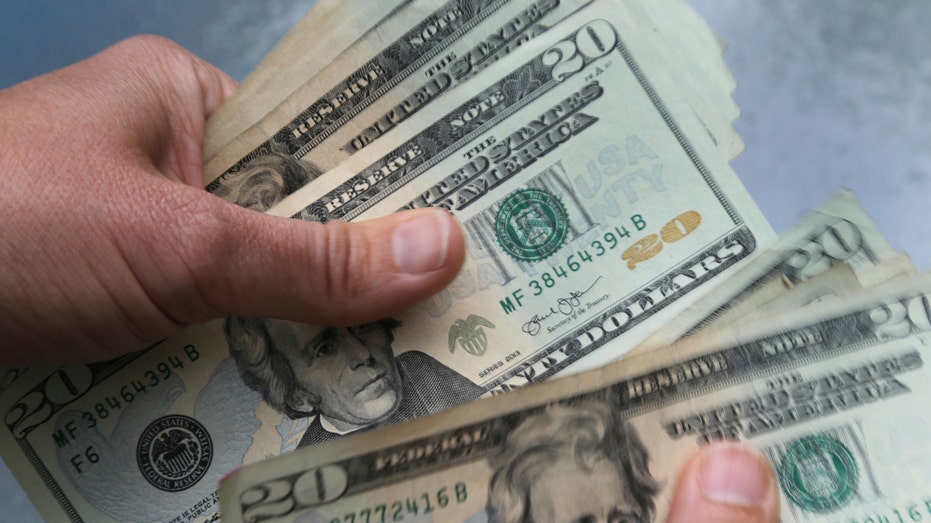Junk fees continue to creep up; White House looking to crack down on hidden charges
Junk fees cost Americans tens of billions of dollars per year
FTC chair's strategy based on ‘theology,’ not rule of law: senator
Sen. Bill Hagerty, R-Tenn., joins "The Big Money Show" to discuss FTC Chair Lina Khan’s testimony during a Senate Judiciary subcommittee’s hearing on antitrust laws and enforcement.
One of the worst parts about junk fees is that, most of the time, you're unaware of them until you're ready to make a purchase – or sometimes not at all.
Every day, American people are shelling out hard-earned cash on undisclosed, last-minute charges fixed by companies, and often, the fees increase without warning.
The Biden administration, accompanied by the Federal Trade Commission (FTC), has proposed crackdowns on junk fees that aren't volunteered to shoppers, renters and others early on in the buying process.
The proposal is titled "Rule on Unfair or Deceptive Fees."
AMAZON SUED BY FTC, 17 STATES FOR ALLEGEDLY INFLATING ONLINE PRICES

Americans are shelling out money on a daily basis to "junk fees," sometimes without knowing. (iStock / iStock)
The purpose of the notice is to "prohibit unfair or deceptive practices relating to fees for goods or services, specifically, misrepresenting the total costs of goods and services by omitting mandatory fees from advertised prices and misrepresenting the nature and purpose of fees," according to the regulation rule document.
Often, deceptive fees like those that materialize right before buying a concert ticket or ordering from DoorDash or Uber Eats quickly add up and affect personal spending and finances. But you might be amassing overlooked hidden charges in your utility bills, rent, hotel bookings and more.
Companies often use misleading language to mask the fraudulent charges. If ever you're confused about a processing charge, reach out to the company in writing and question the legitimacy.
Other approaches for avoiding unfair charges are to shop around and compare prices of goods, services, etc., and keep receipts and communications with companies to report later.
Also, customers can report hidden charges that were not present in the original price or bad business practices to the FTC or to their state attorney general's office. Americans will have an easier time reporting if receipts and communications with companies are accompanied by complaints.
"All too often, Americans are plagued with unexpected and unnecessary fees they can’t escape," said FTC Chair Lina Khan in a statement. "These junk fees now cost Americans tens of billions of dollars per year – money that corporations are extracting from working families just because they can."
Renters are being charged unfair and undisclosed "junk fees" in fine print or terms and conditions. | iStock
She added, "By hiding the total price, these junk fees make it harder for consumers to shop for the best product or service and punish businesses who are honest upfront. The FTC’s proposed rule to ban junk fees will save people money and time, and make our markets more fair and competitive."
AMAZON MAKES IT SO TRICKY TO CANCEL THAT THE FTC SUED. HERE'S HOW
Lawmakers and politicians are divided as some believe the suppression of these fees would leave the economy worse off and side with the corporations while others are in favor of the regulation.
A few of the most common introductory fees when signing a lease to a new rental property include application, move-in, move-out, parking and pet fees.
Deceptively, a landlord won't disclose additional amounts and will sneak bogus fees into the fine print or terms and conditions of a lease. These may include elevator fees, service fees for paying your rent and other such charges and add-ons. It's not until the first of the month that renters are aware of the fees they're facing.
And while it might seem too late after you're charged to do anything about it, sometimes the fees are refundable.
The FTC rule would require businesses, including utility, cable and internet companies, entertainment ticket sites, travel industries and more, to disclose whether fees are refundable and "companies that fail to comply could face fines or penalties and be required to provide refunds," according to AP News.
Two specific misleading processing charges that companies practice on which the FTC intends to clamp down include hidden fees and bogus fees.
"Accordingly, the proposed rule would prohibit businesses from advertising prices that hide or leave out mandatory fees," says the FTC website of hidden fees.
And "the rule would prohibit sellers from misrepresenting fees and require them to disclose upfront the amount and purpose of the fees and whether they are refundable" of bogus fees.
DOORDASH WARNS CUSTOMERS WHO DON'T TIP
But misrepresented fees don't end there. Some companies will not adequately make sense of its charges, which leaves purchasers confused about the exact purpose of the fees.
For example, the DoorDash app's delivery fee notice reads, "Delivery fee varies for each restaurant based on your location and other factors," but consumers may be left wondering what those other factors actually are.
Also, regulation from the Consumer Financial Protection Bureau will force banks to stop charging for basic functions of financial institutions and the Department of Labor will necessitate that financial counsel from advisers to be in the best interest of retirees.
AP News contributed to this report.


